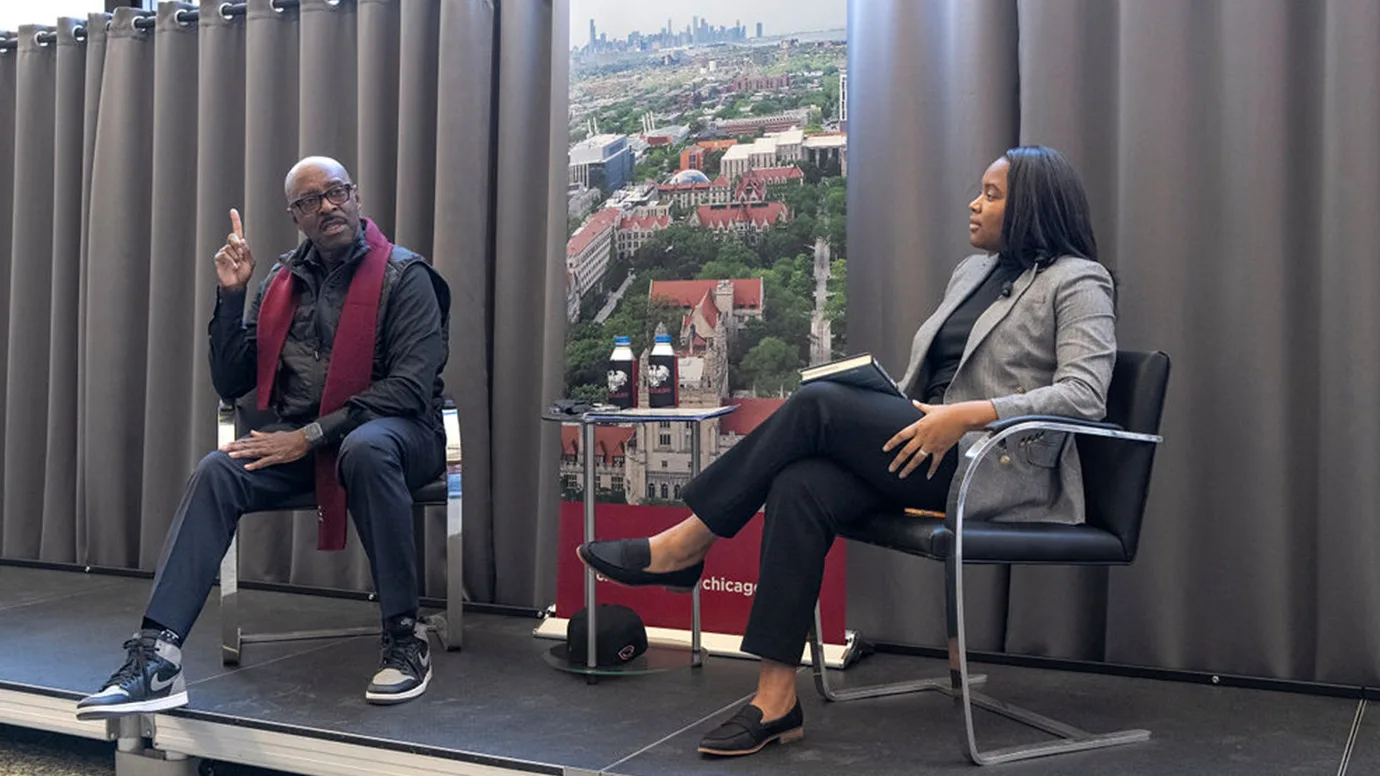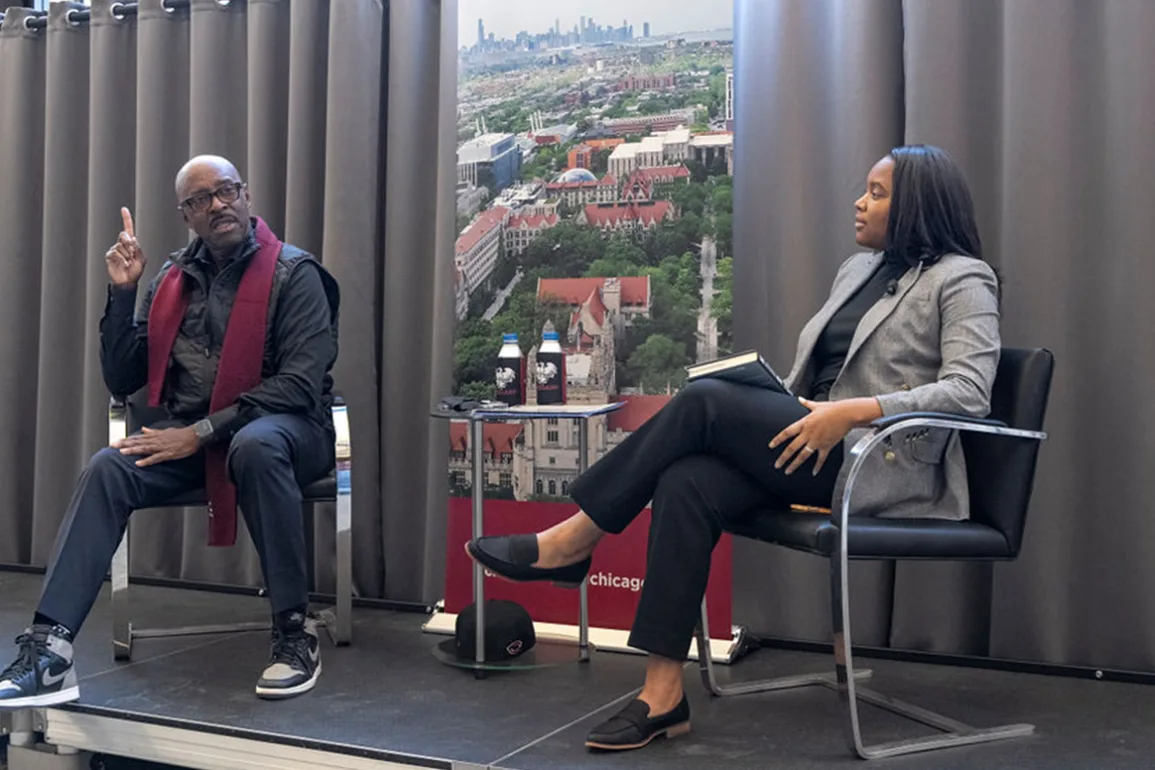
Drawing upon his own personal experiences of losing his father and godson to suicide, actor Courtney B. Vance recently spoke at University of Chicago’s Crown Family School of Social Work, Policy, and Practice about the importance of mental health and wellness among Black men.
As the keynote speaker for the 2024 African American Alumni Committee Symposium, Vance discussed his life and a book he-coauthored, “The Invisible Ache: Black Men Identifying Their Pain and Reclaiming Their Power,” which explores suicide among Black men. The broader event focused on how to break down barriers, deconstruct cultural stigmas, and improve equity and access to Black men’s mental health and wellness.
“We’re very good at suffering,” Vance said. “And we’ll stay there to suffer through whatever, because it’s too much work to actually get some help. But you just have to get ready for the journey for yourself, because it’s about us. It’s about finding your way to you.”
The Feb. 17 event began with remarks by Waldo E. Johnson Jr., UChicago’s vice provost for diversity and inclusion and professor at the Crown Family School. Johnson spoke to the lived experiences of Black men with respect to their struggle toward sustaining good mental health.
Johnson said that Vance’s book was “in conversation with the symposium’s focus on the intersectionality of identity, which links the social complexities inherent in reconciling the unique challenges posed when embracing race, gender, sexuality, and other, which are often contested identities among Black adolescent and adult men.” He pointed to his own research that has shown toxic masculinity exerts a heavy toll on the healthy development of Black male identity.
Throughout his talk, Vance spoke from a place of experience, not expertise. “First of all, I’m the poster child for not knowing what to do,” he said. “That’s why we wrote the book, because people shouldn’t have to reinvent the wheel.”
Janelle R. Goodwill, an assistant professor at the Crown Family School and a scholar who examines suicide within the African American community, explained that “The Invisible Ache” was written to speak directly to Black men who might be experiencing some challenges with their mental health.
Co-authored with Dr. Robin Smith, Vance’s book opens with the lives and then suicides of Vance’s father and godson, then moves into Vance’s experience with beginning therapy at age 30.
“I was raised in a household where we were about God and achievement,” Vance said. “That’s how we dealt with things.” But when his father died, his mother insisted he and his sister seek out a therapist — as she eventually would.


